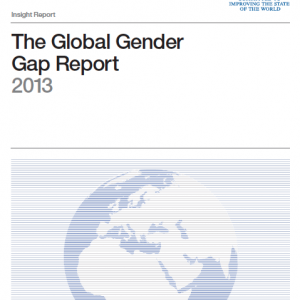 ASTANA – Kazakhstan has been working vigorously to promote gender equality and the country’s efforts have ranked it 32nd out of 136, according to the 2013 Global Gender Gap Report published by the World Economic Forum.
ASTANA – Kazakhstan has been working vigorously to promote gender equality and the country’s efforts have ranked it 32nd out of 136, according to the 2013 Global Gender Gap Report published by the World Economic Forum.
The country’s success, the highest in the Commonwealth of Independent States (CIS), in this sphere can be attributed to the state’s implementation of carefully planned gender policy aimed at equalizing the status of women and men in society.
Since independence, Kazakhstan has made aggressive steps in integrating gender policy. The country’s gender projects are unique compared to other nations and are generally initiated by the state, which takes preventive and proactive measures to address gender issues.
The main tools used in advancing gender equality have been the elaboration and implementation of the Gender Equality Strategy in Kazakhstan for 2006-2016, as well as the adoption of two laws – “On Domestic Violence” in 2009 and “On the Prevention of Offences” in 2010.
In order to improve the legal framework for anti-domestic violence legislation and to assist domestic violence victims, President Nursultan Nazarbayev signed the law “On Amendments and Additions to Some Legislative Acts of Kazakhstan on Combating Domestic Violence” on Feb. 18.
Introducing the bill, Senator Lyudmila Poltorabatko said the legislation carries amendments to the Code of Administrative Offences aimed at improving the effectiveness of anti-domestic violence laws.
“The main purpose of the bill is to amend existing legislation on state and social control, social services and the prevention of domestic violence,” Poltorabatko noted.
The bill raises the stakes for offenders, who can now be banned from living with the victim if the perpetrator has somewhere else to live. According to members of parliament, the current legislation is not effective in preventing domestic violence and is often paid for by the family. Because of this, parliamentarians have proposed administrative arrest as a solution.
According to Poltorabatko, these two laws mandate that safety and security arrangements be made for the victim in case the threat of physical or mental harm is present. Thanks to the adoption of these documents, the Ministry of Internal Affairs issued over 55,000 protection orders in 2013 alone. At the request of law enforcement, the courts set 4,915 special requirements and 46 people were put under administrative responsibility for violation of the conditions of a protective order.
“In 2013, these measures reduced domestic violence related crime. Over the past seven years, the number of such crimes has fallen by half,” Poltorabatko noted.
In 1995, with the aim of improving policies for women, children and the sanctity of the family, President Nazarbayev established the Council for Women, Family and Demographic Policy under the President of Kazakhstan. In 1998, it was transformed into the National Commission for Women and Family Affairs and given more powers and autonomy.
Until recently, Gulshara Abdykhalikova headed the National Commission before her appointment to Deputy Prime Minister of Kazakhstan in November 2013.
Today, Kazakhstan is the only country in the CIS with a family and women’s affairs apparatus of its class that has received positive evaluations from the international community.
Under the Gender Equality Strategy, the National Commission has attained positive results in ensuring gender equality in all spheres of social and political life in the republic.
To date, every fourth member of the lower house of Parliament and local representative bodies is a woman. The number of female managers in the executive branch is also growing. Now, every tenth political civil servant and every seventh civil servant of the newly created managerial elite is a woman.
A programme supporting women’s entrepreneurship is also in place. Over the last 10 years, the ratio of women in SMEs has increased to 52 percent. About 40 percent of Kazakhstan’s GDP is women-generated.
In related news, the 57th Session of the UN Committee on Elimination of Discrimination against Women in Geneva on Feb. 18 heard the third and fourth periodic reports on Kazakhstan’s implementation of provisions of the Convention on the Elimination of All Forms of Discrimination against Women.
Makhabbat Bekbosynova, Chair of the National Commission on Women and Family and Demographic Policy under the President led Kazakhstan’s delegation and presented the report.
She told members of the UN committee of major developments and changes in social-economic and political spheres in Kazakhstan. Bekbosynova said President Nazarbayev’s recent state-of-the-nation address aims at enhancing life standards and life expectancy, demographic growth, and achieving world standards in education and healthcare, as well as easing access to housing and civil protection from crime.
Nicole Emelina, an independent expert from France, who chaired the meeting, underlined that Kazakhstan’s delegation gave careful consideration to fulfillment of Committee’s recommendations. Committee members Ayse Acar and Patricia Schultz noted that Kazakhstan’s recent achievements provided a solid basis to conclude that the country implemented the set tasks and fulfilled its international obligations in the area of gender equality.

